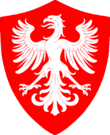Socialist Question (Seketan): Difference between revisions
| Line 13: | Line 13: | ||
==Early Democracy== | ==Early Democracy== | ||
[[File:1978 Seketese Election.svg|220px|thumb|left|Results of the 1978 election]] | |||
[[File:1980 Seketese Election.svg|220px|thumb|left|Results of the 1980 election]] | |||
Seketan's first fully democratic election was held on 13 November 1978 and resulted in split parliament between the Socialist Party (SY), Democratic Party (DY), and Kjedorates. The two biggest pro-democracy parties formed a grand coalition (SY and DY) along with the smaller Liberal Party, with Socialist leader [[Patjik Moulette]] becoming Prime Minister. The Kjedorate Party formed Chief Opposition for the first time in its history, and it was the first time since 1950 that the Kjedorates were not in power. This coalition though would prove unstable and by [[1980 Seketese General Election|1980 new elections]] were held, which resulted in a Socialist majority government. | |||
==Today== | ==Today== | ||
==Critism== | ==Critism== | ||
Revision as of 20:29, 15 March 2023
 |
|---|
| This article is part of a series on the politics and government of Seketan |
The Socialist Question is a Seketese political paradox surrounding the left-wing Socialist Party and Seketan post the 1978 Seketese Revolution. It was first described in political scientist Simeon Braja's 2000 book The Socialist Question: Authoritarian rule after the Kjedorates, published soon after the 1999 Seketese election which had resulted in the defeat of the short-lived James Marksonn Conservative government. In his book, Braja poised that despite the fall of Seketan's authoritarian Kjedorate regime in 1978, the unbroken electoral success of the Socialists from 1978-1996, plus their quick parliamentary toppling of Marksonn's government, raised questions about whether they had just become a new Kjeodrate regime.
Today, Braja's theory has been largely disproven by the wider Seketese political science community and the electoral success of opposition parties at the state and national levels. The "question" was widely viewed as resolved after the National Conservatives under Tomas Serdoa won three elections in a row, 2005, 2006, and 2010. Despite the Socialists returning to power between 2014-2021, the victory of the anti-establishment party Our Revolution in 2021 has been viewed by political commentators as finally putting an end to the "question".
Background
Seketan has a long history of authoritarian and single party rule. Like many European nations, it was originally born as a feudal monarchy in the 11th century, eventually becoming a semi-absolute monarchy with a largely toothless legislature by the 18th century. The Kingdom was absorbed into the Nelbec Empire in the late 1800s, with its legislative Hérvynsken earning more powers under the empire, though still remaining largely under the thumb of the Nelbec Emporer. Seketese language and cultural rights were largely respected under the Empire, with the language of day-to-day politics being in Seketese. Minority & non-Nelbec languages and cultures like Fjeskan and Trjebian were suppressed by the imperial system. An Imperial decree in 1902 permitted only the use of Nelbec languages (Alquiyan, Seketese, and Wilsk) in public life. With the outbreak of World War 1 the imperial government cracked down hard on anti-war and anti-government speech to promote the war effort.
With the Nelbec Empires' defeat in the First World War, the newly independent Republic of Seketan would be the nation's first stint with democracy. After defeating the rebel Sosymet Republic, a parliamentary democracy was established by the victorious Kjedorate Party with the Hérvynsken at the centre. The first Republican government would prove to be short-lived, and shortly after the civil war, a new Federalized Seketes Republic would be established, bringing Wilskland into the fold with a strong presidency and a Federal Assembly, though it mostly existed to echo legislation passed by the Hérvynsken in Seketan. Simmering tensions between Wilsk Nationalists, pro-democracy parties, and the Nelborne War would lead to the eventual restructuring of the federation into a unitary-presidential system, with the Kjedorate Party at the top, known as the Third Seketese Republic. The new government elected its President and Prime Minister through the Kjedorate-controlled National Assembly. With these measures in place, the Kjedorates had near full control over the government, starting their 53-year authoritarian rule over Seketan.
The Kjedorate regime committed many human right abuses during their 53 years against political opposition and non-nelbecs, such as the Fjeskan Genocide, segregation of Trjebians, and the arrest of political opposition leaders. By the 1970s Seketan's economy began to stagnate, and previous ethnic tensions started the Fjeskan conflict, in a period known as Zemasy. By 1978 protests against the Kjedorates expanded into the 1978 Seketese Revolution, and by August free elections were promised for the fall. With this, the Third Republic had fallen and a democratic Fourth Republic had been established.
Early Democracy
Seketan's first fully democratic election was held on 13 November 1978 and resulted in split parliament between the Socialist Party (SY), Democratic Party (DY), and Kjedorates. The two biggest pro-democracy parties formed a grand coalition (SY and DY) along with the smaller Liberal Party, with Socialist leader Patjik Moulette becoming Prime Minister. The Kjedorate Party formed Chief Opposition for the first time in its history, and it was the first time since 1950 that the Kjedorates were not in power. This coalition though would prove unstable and by 1980 new elections were held, which resulted in a Socialist majority government.


